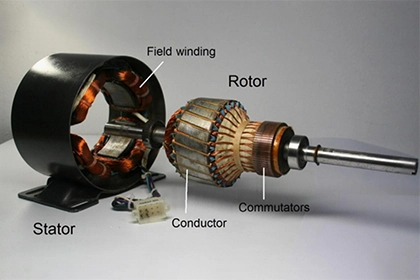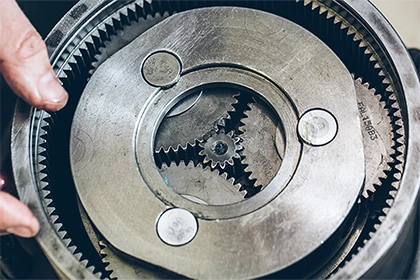
Are Brushless Motors AC or DC?
Brushless motors, as opposed to brushed motors, employ permanent magnets and electronic commutation to regulate motor rotation. In this study paper, we will investigate whether brushless motors are AC or DC, and we will evaluate the benefits and drawbacks of each kind of brushless motor.
Brushless motors are a type of electric motor that uses permanent magnets and electronic commutation to control the motor rotation, rather than the traditional brushes and commutator used in brushed motors. Brushless motors are becoming increasingly popular in a variety of applications, due to their high efficiency, durability, and reliability. In this research essay, we will explore the question of whether brushless motors are AC or DC, and we will discuss the advantages and disadvantages of each type of brushless motor.
AC brushless motors are electric motors that operate on AC power and use electronic commutation to control the motor rotation. AC brushless motors typically use three-phase winding circuits, which generate a rotating magnetic field that drives the motor rotor. AC brushless motors are typically more efficient and durable than DC brushless motors, as they do not require the additional components and losses associated with DC-to-AC conversion.
One of the main advantages of AC brushless motors is their high efficiency. AC brushless motors use permanent magnets and electronic commutation, which reduces the losses associated with friction and electrical resistance. This allows AC brushless motors to convert more of the electrical energy into mechanical energy, resulting in higher power and torque output.
Another advantage of AC brushless motors is their durability. AC brushless motors do not have the wear-and-tear components, such as brushes and commutators, that are present in brushed motors. This means that AC brushless motors are less susceptible to wear and failure, and they can operate for longer periods of time without maintenance.
AC brushless motors are typically used in applications that require high power and speed, such as in electric vehicles, industrial machinery, and large fans or pumps. AC brushless motors are also used in high-performance servo systems, where precise speed and torque control is required.
DC brushless motors are electric motors that operate on DC power and use electronic commutation to control the motor rotation. DC brushless motors typically use a single-phase winding circuit, which generates a pulsating magnetic field that drives the motor rotor. An DC Brushless Motor is typically more versatile and compact than AC brushless motors, and they can be easily integrated into a wide range of electronic control systems.
One of the main advantages of DC brushless motors is their versatility. DC brushless motors can be easily controlled using electronic circuits and microprocessors, which allows for precise speed and position control. This makes DC brushless motors suitable for applications that require precise motion control, such as in computer drives, robotics, and servo systems.
Another advantage of DC brushless motors is their compact size. DC brushless motors do not require the three-phase winding circuits that are used in AC brushless motors, which makes them smaller and more lightweight. This makes DC brushless motors suitable for applications where space is limited, such as in portable devices and handheld tools.
DC brushless motors are typically used in applications that require precise speed and position control, such as in computer drives, robotics, and servo systems. DC brushless motors are also used in portable and handheld applications, where compact size and low weight are important.
In conclusion, brushless motors can be either AC or DC, depending on the specific design and application. AC brushless motors are typically more efficient and durable, while DC brushless motors are more versatile and compact. Both types of brushless motors have advantages and disadvantages, and the choice of AC or DC depends on the specific requirements of the application.



Leave a Comment